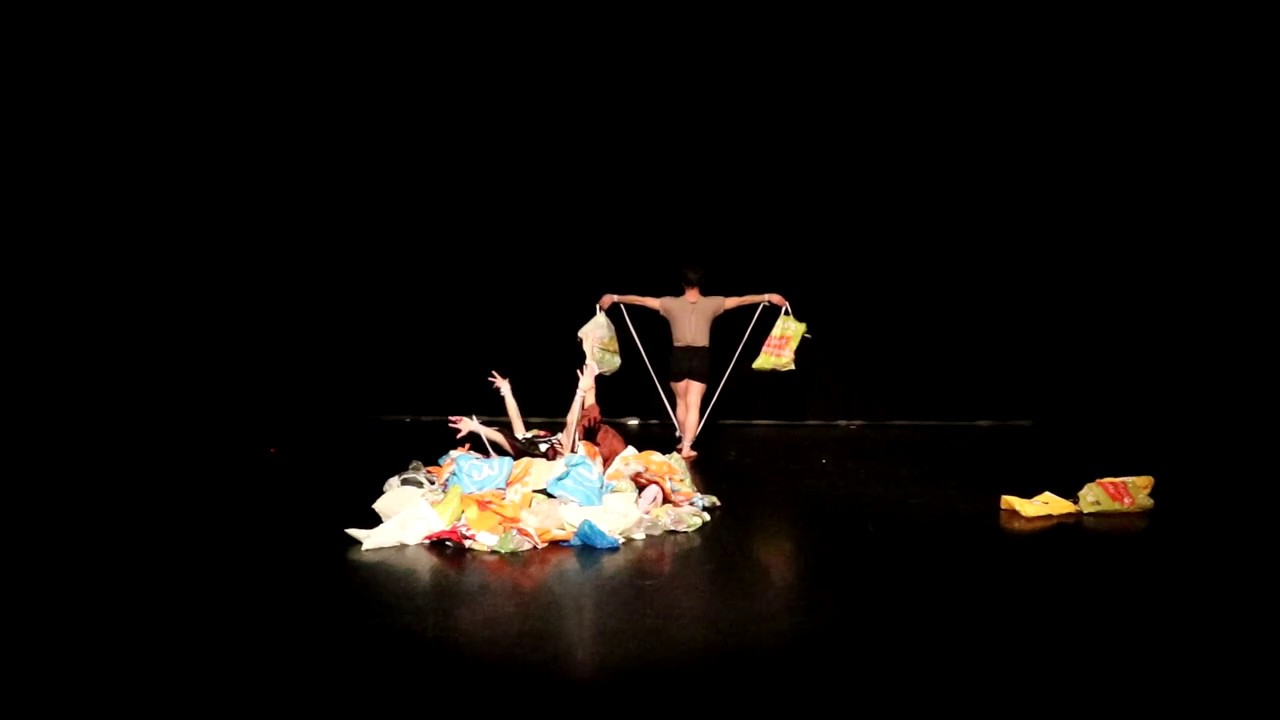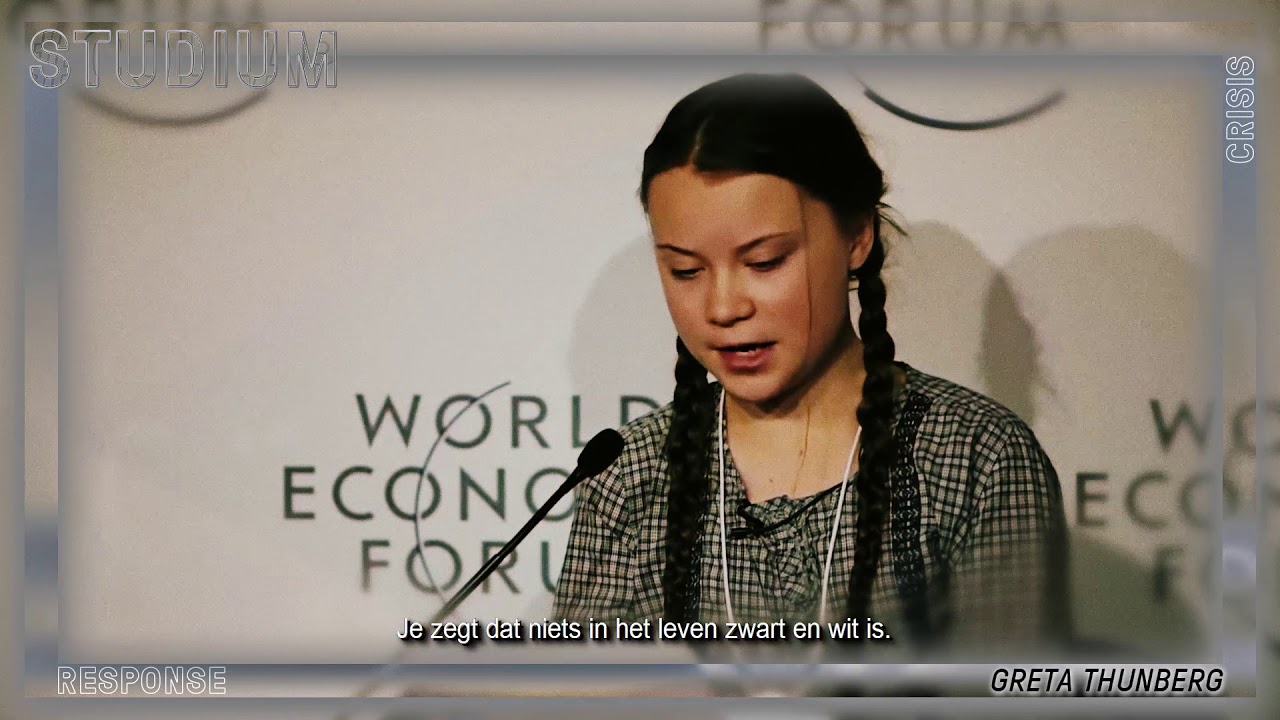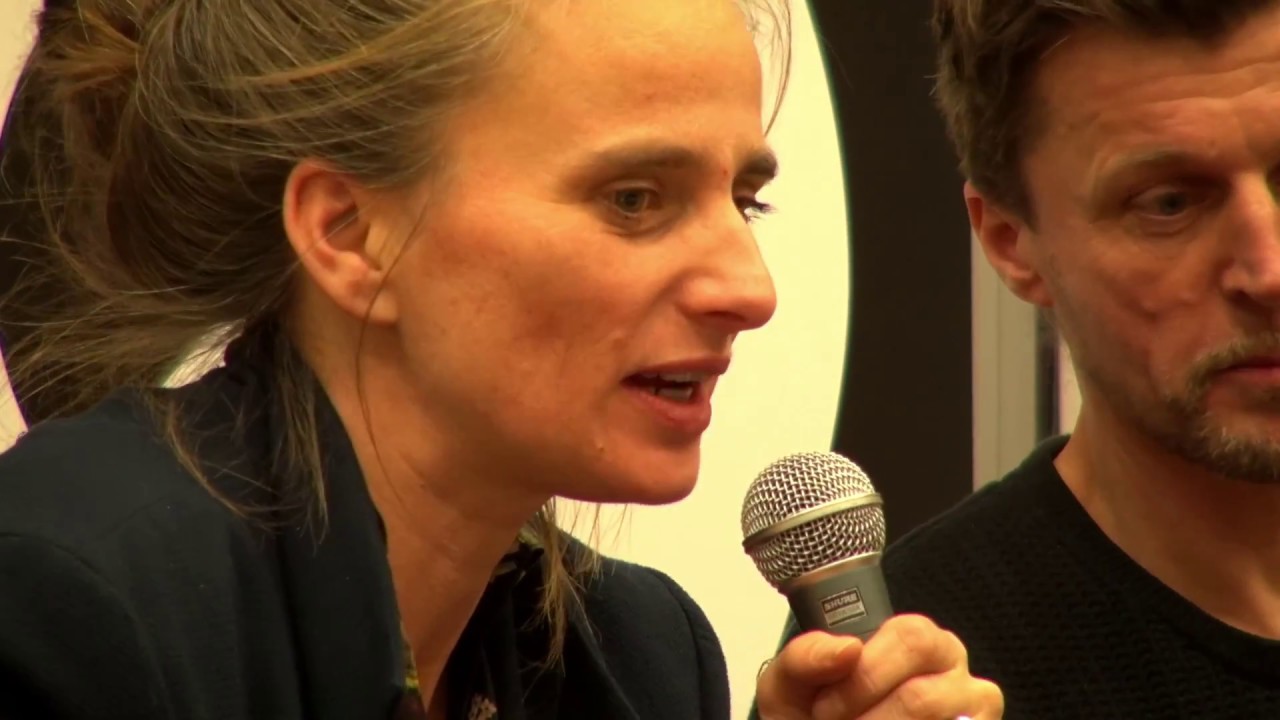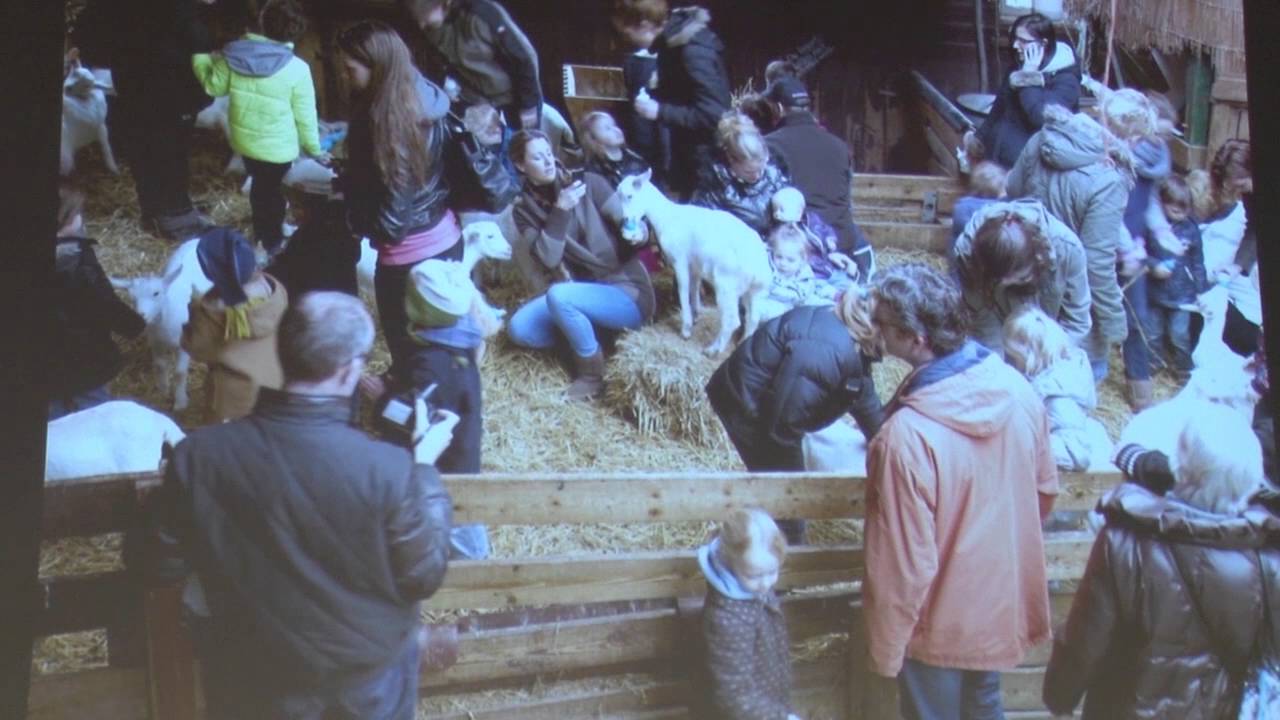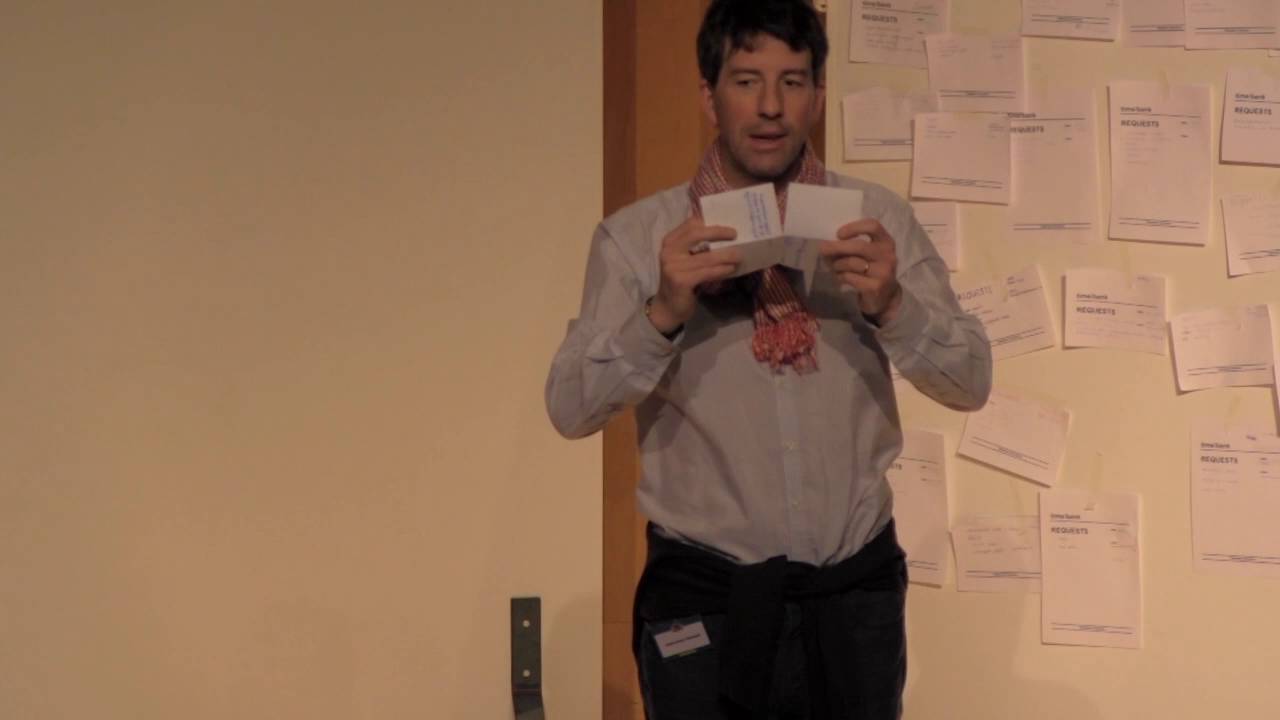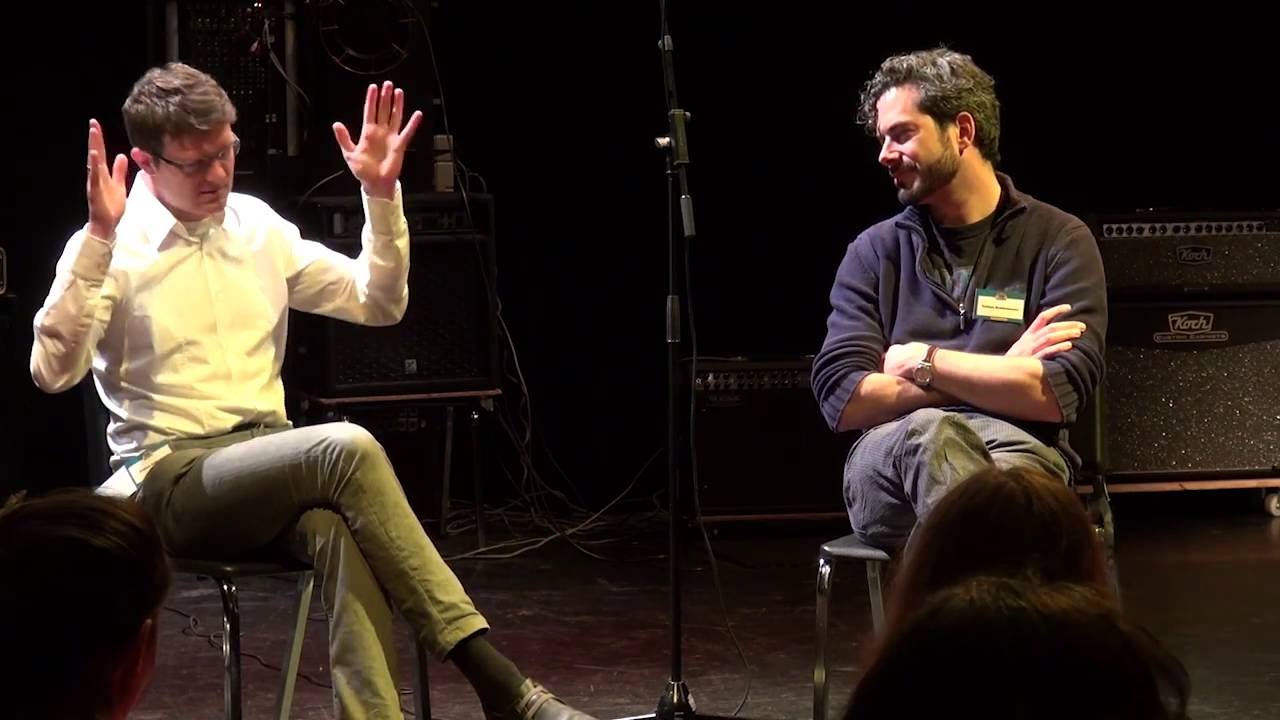Rethinking Anthropocene
Essays, blogs & interviews
Trips Across the Abyss
When I think of climate change, I struggle to make sense of the world and the people around me. Scientists have called the next century 'the century of hell'. What is immoral and illogical should not happen. And yet, it does happen. 'Status quo', 'business as usual,' or, in less fuzzy terms, 'situation normal, all fucked up.' Stroll around the grounds until you feel at home.
Tales from the Abyss
I was invited to respond to Harriet Bergman’s essay Trips Across the Abyss (2019), itself a response to Bridge Over Troubled Water (2016) – a short film by performance collective MSL and Jaakko Pallasvuo. This response to a response to a film, that is itself a response to the nonsensical affect swirling through and about human and non-human life in the face of climate change, is structured by a series of questions, of political orientations of an often acutely depoliticised subject, and, of course some fictitious (or predictive depending on your point of view) interjections.
A story by Celile Demir, who asks: What does it mean to be an organism?
Part of Living Matters non-exhibition
Celile maps the boundaries of bodies by zooming into their parts. Are bodies just a sum of their parts or are they more? As she claims: “There is a constant exchange between our internal environments and outside environment. This means that our organism extends beyond what we currently define as an organism.”
A story of Dawoon Kim, who asks: What is the new biological me?
Part of Living Matters non-exhibition
In a time when education means being stuck behind screens, and all that can hope for in terms of human communication is the mercy of the algorithm and a good wi-fi connection, the questions of who we are as living bodies became urgent for Dawoon.
A story by Eric Bari, who asks: How can we rethink/re-use our wastage to create resources to gain knowledge, as well as understanding the value of our surroundings?
Part of Living Matters non-exhibition
Having time to work on wood at his home, Eric collected a lot of sawdust, which he learned to transform into MDF (medium density fibreboard). In addition, he started to ferment food, but not in order to lead more healthy life, but as he explains, he was searching for the smell of his grandparents’ house, as they used to ferment food as well.
A story by Talitha Fruneaux, who asks: Is it OK to play with life?
Part of Living Matters non-exhibition
Talitha mapped bacteria from her home surroundings, and these invisible bodies quickly became her companions.
A story by Rojin Tavassoli, who asks: How we can bring the past and future into life? How bio-art can help in this process?
Part of Living Matters non-exhibition
The aim of this investigation is to satisfy my curiosity about how I could grow my memory and preserve it in the future.”
Living Matters online exhibition
storytelling by AKI Bio Matters research on the precarity that has always been now
What is storytelling, or better yet, what does storytelling do?
Notes on film program How On Earth and online exhibition “Living Matters”
What was it like to have encounters and gatherings at school? I had to dig deep in order to recount how I felt the first time I visited AKI Enschede for the film program How On Earth.
Interview bachelor student dance Polina Nikolaeva
About her choreography
Polina Nikolaeva, bachelor student dance at ArtEZ, made a choreography with the theme climate. ArtEZ Studium Generale spoke her about it.
Projects about climate colonialism, climate breakdown and climate activism from the Arte Útil archive
We asked curators and educators Gemma Medina and Alessandra Saviotti to select some projects that deal with climate colonialism, climate breakdown and climate activism from the Arte Útil archive. This online, growing database is free and features case studies which use art as a way to change how we act in society.
‘Wanneer land de basis vormt van betekenis, is groei een gekke obsessie’
In gesprek met Chihiro Geuzebroek
Op woensdag 22 april 2020 was filmmaker en klimaatrechtenactivist Chihiro Geuzebroek te gast in het online lunch event dat mister Motley samen met ArtEZ Studium Generale organiseerde. Dit event ging over de kracht van leuzen en liedjes in de dekoloniale klimaatstrijd.
Video lectures, interviews & registrations
Chihiro Geuzebroek: Poetic Climate Justice & Indigenous Futurism
Videoregistratie online event 22 april 2020
Mister Motley en ArtEZ Studium Generale begonnen een online lunch event serie op woensdag 22 april 2020 met filmmaker and climate justice activist Chihiro Geuzebroek en spraken met haar over het verband tussen de klimaatbeweging, racisme en de rechten van Inheemse volken. En over de kracht van protestliederen en science fiction om dingen te veranderen.
Crisis x Response
In times of heightened crises, are there limits to art’s potential for radical change? How should we act in response to crisis?
Current global affairs can be characterized as a continuous state of emergency. The potential of artistic practices lies in learning to imagine and navigate your practice in relation to your environment. The potential danger of art lies in advocating solutions and optimism devoid of local needs and knowledge.
Talkshow: Lotte van den Berg over Het parlement van de dingen
Theatermaker Lotte van den Berg gaf de workshop Het parlement van de dingen bij ‘U staat hier’ op 10 november 2016. In de talkshow vertellen zij en enkele deelnemers over hun ervaringen. Interview door Patty Pontier.
Lezing Henk Wildschut: ‘Voedsel en de realiteit achter het beeld’
Weinig onderwerpen roepen zoveel discussie op als het voedselvraagstuk. Daarin voeren scepsis en pessimisme over de productie van ons voedsel steeds vaker de boventoon. Toen Henk Wildschut gevraagd werd zich te verdiepen in het onderwerp ‘voedsel’ zat hij vol vooroordelen over de voedselindustrie. Door zich te verdiepen in de moderne innovatieve productie van ons basisvoedsel (groente, vlees, eieren en melk) veranderde dit beeld. Hij ontdekte dat onze afkeer van de moderne voedsel industrie is gebaseerd op nostalgisch beelden die al lang niet meer bestaan. In zijn lezing presenteert hij realistische beelden die minder eng zijn dan ze lijken.
An interactive workshop by John-Paul Flintoff: How to Change the World?
Flintoff teaches ArtEZ students how they can make a difference at A New Dawn, 24 May 2013, by ArtEZ Studium Generale.
Willem Schinkel in gesprek met Wunderbaum
Bij ArtEZ Studium Generale werden de deelnemers aan de workshop van Wunderbaum uitgenodigd voor een collectieve brainstorm. Socioloog Willem Schinkel, auteur van het boek De Nieuwe Democratie, voedde de discussie met zijn radicale ideeën.
Podcast
Harriet Bergman on climate breakdown
Radio ArtEZ, season 3, episode 4
This episode features excerpts from a talk by Harriet Bergman and a conversation we had before the talk. The talk was part of the How on Earth programme by ArtEZ Studium Generale.
BONUS: De zaak Shell - Monoloog voor een consument
Nederlands gesproken
In deze bonusaflevering presenteren we een monoloog uit De zaak Shell, van Rebekka de Wit en Anouk Nuyens. In deze monoloog wordt de rol van de consument in de klimaatafbraak onderzocht. Want zonder dat de consument het wellicht weet, speelt hij al sinds het begin van de rechtszaak een hoofdrol. Shell heeft namelijk al meerdere keren laten weten dat er een fout is gemaakt in deze rechtszaak. Niet zij zouden verantwoordelijk zijn voor klimaatverandering, maar wij: de consumenten.
